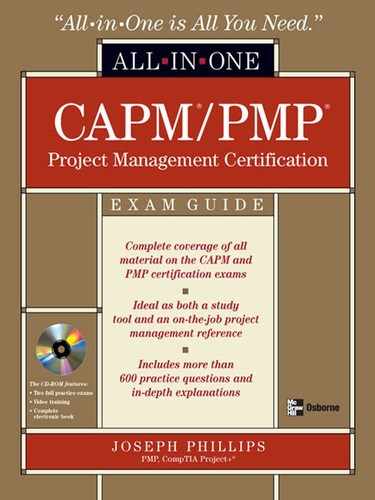Chapter 5. Managing the Project Scope
You're the project manager of a large, complex project. Everyone is in agreement that the project must be completed within one year, the budget is tight, and there's little room for error. One of your project team members, Tony, has taken it upon himself to incorporate "extras" into the project deliverable to make it snappier, better, and easier for the product customer to use. While his project additions are clever, they aren't in the project scope.
Tony argues how his creative additions don't cost the project anything extra and the customer will love what he's come up with. The trouble, for you, the customer, and Tony, is that the time he's spent changing the scope should be spent doing the things that are in the scope. In addition, the extras aren't in the scope, aren't managed and reviewed as change requests, and will likely be a surprise to the project customer. Not to mention the added risks, potential for defect, and the contempt for an established change control system.
NOTE
Managing the project scope.
Managing the project scope, according to the Project Management Body of Knowledge (PMBOK), is the project manager's job and ensures that all of the required work—and only the required work—is done to complete the project successfully. Project scope management doesn't permit Tony's, or anyone else's, additions. Scope management is agreeing on what's in the scope and then defending that agreement.
